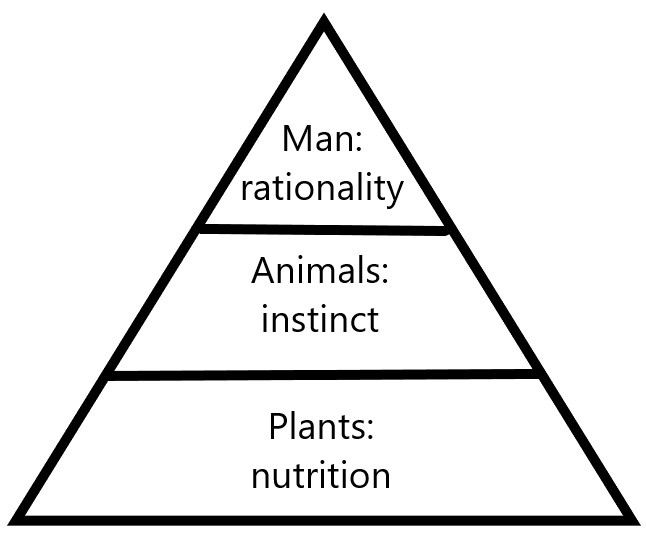Aristotle and reason
Aristotle’s ethics can be mainly found in two of his works: Eudemian Ethics, and Nichomachean Ethics. They both carry the names of their editors: of his friend Eudemus and of Aristotle’s own son Nichomacus respectively. The two books are thought to be the first ever unified works dedicated entirely to morality. Nichomachean Ethics also seems to be a refined reworking of the other work.
Both works begin by discussing the concept of eudaimonia, or as is often translated, happiness. They then examine the nature of arete, or virtue.
What distinguishes living things from non-living things? In Aristotle’s view, living things have distinct characteristics that set them apart from each other and from non-living things.
Think of living things as occupying a pyramid.

Plants, at the bottom of the pyramid, have nutrition which sets them apart from non-living things such as rocks, water, and metals. Aristotle called this the nutritive soul.
While animals also have nutrition, they are distinguished from plants by having instinct, an innate pattern of behaviour in response to certain stimuli. They have a sensitive soul.
Finally, human beings occupy the topmost level of living things, having both nutrition and instinct, as well as what sets them apart: rationality.
This quality, of being able to use reason and logic, is our soul, our defining feature. It is the rational soul.
Exercising rationality is the function of human beings. When we exercise our rationality, we are exercising our true nature; we are as close as we can get to becoming the best we can possibly be. The exercise of our rationality is, therefore, what brings us closer to eudaimonia.



